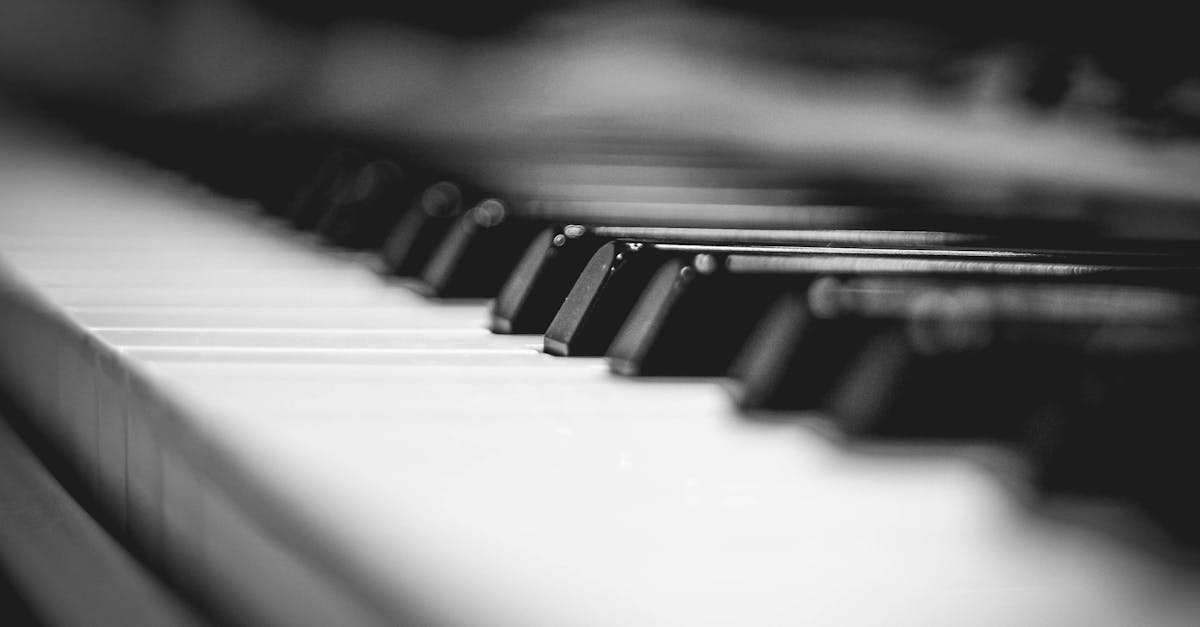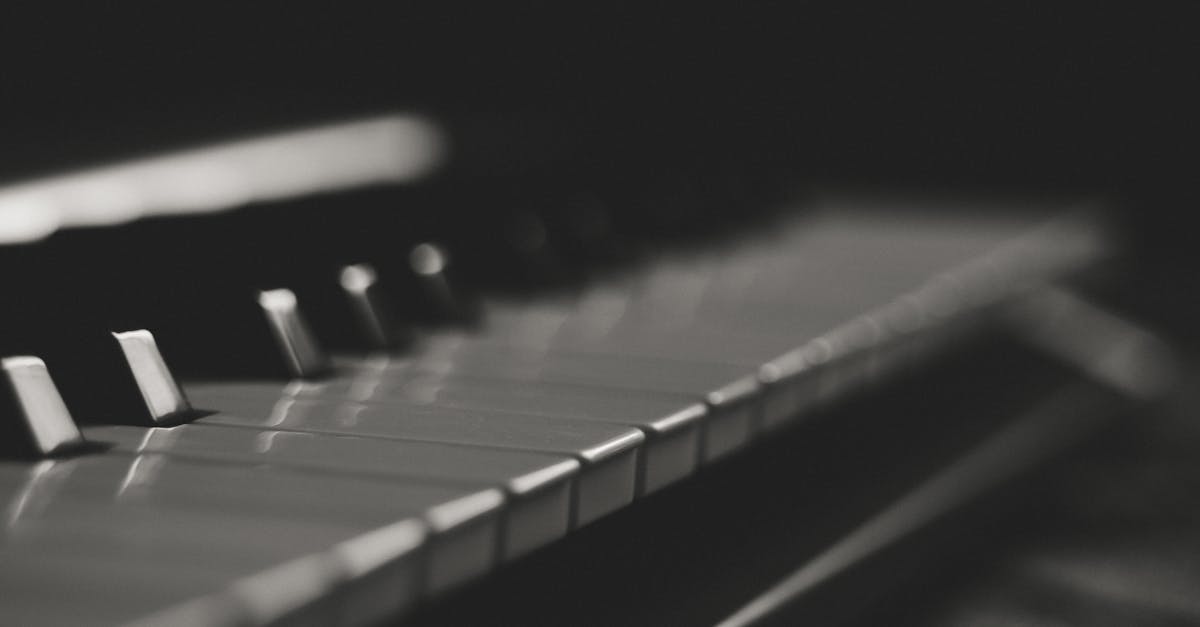Do you want to learn how to play piano but don’t know where to start? Whether you’re a complete beginner or looking to improve your finger technique and learn different piano styles, this blog article is for you. Playing the piano is not only a rewarding skill but also a wonderful way to express yourself through music. In this article, we’ll cover how to play piano, finger technique, different piano styles, and understanding the pedals. So, let’s get started on your musical journey!
Main Points:
- How to Play Piano: Learn the basics of piano playing and develop your skills step by step.
- Finger Technique: Improve your finger dexterity and control to play more complex pieces with ease.
- Different Piano Styles: Explore various musical genres and learn how to adapt your playing style accordingly.
- Pedals: Understand the function and importance of the pedals in playing the piano.
Mastering Hand and Finger Technique
When it comes to playing the piano, mastering hand and finger technique is crucial for musicians of all levels. Whether you’re a beginner trying to learn piano online or a more experienced player looking to improve, focusing on hand and finger technique can take your skills to the next level. To help you achieve this, here are some important tips to keep in mind:
Key Points to Remember:
- Piano Tutorial: Take advantage of piano tutorial videos and resources that can help you understand proper hand and finger placement on the keys.
- Learn Piano Online: Look for online courses or tutorials specifically focused on hand and finger technique to supplement your learning.
- Beginner Piano Lessons: If you’re just starting out, prioritize learning correct hand positioning and finger exercises from the beginning.
By paying attention to these key points and consistently practicing, you can improve your hand and finger technique on the piano, leading to better overall performance and enjoyment of the instrument.
Understanding Music Theory for Piano
So, you want to dive into the world of piano playing? Congratulations! The first step in mastering this beautiful instrument is understanding music theory. Don’t worry, it’s not as daunting as it sounds. With the right guidance, you can grasp the fundamentals of piano playing techniques, learn how to play piano by ear, and discover effective piano practice tips.
Key Concepts in Music Theory for Piano
| Piano Playing Techniques | How to Play Piano by Ear | Piano Practice Tips |
|---|---|---|
| Mastering finger placement, dynamics, and articulation. | Training your ear to recognize chord progressions and melodies. | Setting a consistent practice routine and focusing on challenging sections. |
By immersing yourself in these key concepts, you’ll lay a solid foundation for your piano journey. Stay tuned for more tips and tricks to enhance your musical prowess!
Exploring Different Piano Styles and Genres
When it comes to learning the piano, there are so many different styles and genres to explore. From classical to jazz, pop to rock, the possibilities are endless. Whether you’re a beginner looking for easy piano songs or an experienced player seeking to expand your repertoire, there are plenty of resources available. You can find piano tutorials and learn piano online, all from the comfort of your own home.
Easy piano songs, piano tutorials, and learn piano online
are all important aspects of exploring different piano styles and genres. By taking advantage of these resources, you can expand your musical horizons and develop your skills as a pianist. So, why not take the plunge and start exploring all the amazing music that the piano has to offer? The possibilities are truly endless.
Developing Effective Practice Routines
When it comes to mastering a new skill, consistency is key. This is especially true for beginner piano players. Creating and sticking to a practice routine can make a world of difference in your progress. Here are some tips to help you develop an effective practice routine:
Set specific goals:
Before each practice session, set clear and achievable goals for what you want to accomplish. This will give your practice a sense of purpose and direction.
Break it down:
Instead of trying to tackle a whole piece at once, break it down into smaller sections and work on each part individually. This will help you focus on the challenging areas.
Stay consistent:
Try to practice at the same time every day to build a consistent routine. This will help you form a habit and make progress more quickly.
Track your progress:
Keep a practice log to track your daily progress. This will help you see how far you’ve come and where you need to focus more.
| Practice Tips | Details |
|---|---|
| Set specific goals | Setting clear and achievable goals will give your practice a sense of purpose and direction. |
| Break it down | Breaking down a piece into smaller sections will help you focus on the challenging areas. |
| Stay consistent | Practicing at the same time every day will help you form a habit and make progress more quickly. |
| Track your progress | Keeping a practice log will help you see how far you’ve come and where you need to focus more. |
Utilizing Pedals and Expression in Piano Playing
When it comes to playing the piano, it’s essential to understand the significance of utilizing pedals and expressing emotions through your playing. The pedals allow for sustained notes and create a beautiful resonance, while expression adds depth and feeling to your performance. Whether it’s the sustain pedal, soft pedal, or sostenuto pedal, each has its own unique function that can greatly enhance your playing. Additionally, mastering the art of expression is crucial for conveying the intended emotions and connecting with your audience on a deeper level.
Frequently Asked Questions
How do I start learning to play the piano?
You can start by finding a good instructor or using online resources to learn the basics of playing the piano.
What are the essential skills needed to play the piano?
Patience, finger dexterity, hand-eye coordination, and the ability to read music are essential skills for playing the piano.
How often should I practice playing the piano?
It’s recommended to practice at least 30 minutes to an hour each day to make consistent progress.
Can I learn to play the piano as an adult?
Yes, adults can definitely learn to play the piano with dedication and consistent practice.
What are the benefits of learning to play the piano?
Learning to play the piano can improve cognitive function, reduce stress, and provide a creative outlet for self-expression.


